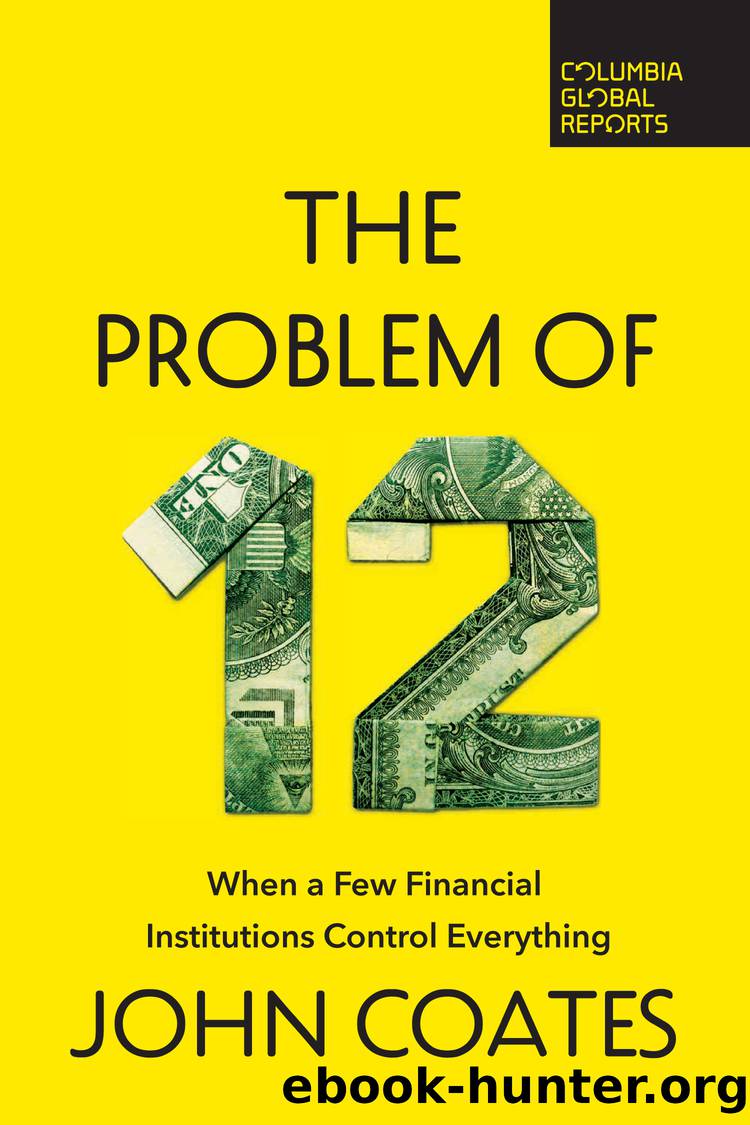The Problem of Twelve by John Coates

Author:John Coates
Language: eng
Format: epub
Publisher: Columbia Global Reports
Private Equityâs Political Influence and Effects
For much of its existence, private equity has not been observably political, in keeping with its overall strategy of remaining private, with as little publicity and transparency into its operations as possible. An exception is that in the 1970s and 1980s, when private equity firms were known as buyout firms, and continuing into the 1990s, they helped lobby (through the National Venture Capital Association) for securities deregulation to make it easier for them to raise capital while remaining private.
Under securities law, none of the companies owned by private equity funds have to report to shareholders, as do public companies. This makes it harder for journalists to identify potential sources of political engagement by those companies or their managers. Many people who have derived their wealth from careers in private equity are rich enough to influence politics without creating observable tracks in the public record. As a result, it is likely that observable political activity understates the industryâs actual influence over the political system.
Nonetheless, starting during the financial crisis, private equity firms and their owners began to openly lobby and participate in election campaigns. Since shortly after forming its first formal trade group in the mid-2000s, the industryâs lobbying expenditures jumped from relatively low levels to a peak in 2007, as the financial crisis unfolded, as shown in Figure 4.1, which is based on data from Open Secrets. Total lobbying expenditures are now comparable to those of the largest index funds, roughly equivalent to those of hedge funds, and about a fourth that of the US Chamber of Commerce. The industry also donates a large amount of money directly or through conduits to candidates and PACs controlled by parties or candidates.
The crisis led to a major financial reformâthe Dodd-Frank Act. Any reform of that magnitude becomes what people in Washington call âa Christmas tree bill,â because it is so large that numerous elements can get added to it, like ornaments. Dodd-Frank was likely to have major implications for private equity. Private equity was not significantly responsible for the crisis, but many private equityâfunded buyouts failed and many previously acquired companies went bankrupt in its aftermath. Its basic debt-heavy business model and its tight relationships with participants in the leveraged loan market gave it ample reason to engage powerfully in politics during the debates over how government should respond to the crisis. The industry has reason to pay close attention to regulation and law governing finance generally, because the formal legal organization of their funds and advisory firms can be affected by open-ended legal definitions aimed at other financial subsectors, such as hedge funds, investment advisors generally, or investment companies.
Figure 4.1: Lobbying totals, 1998â2022
Download
This site does not store any files on its server. We only index and link to content provided by other sites. Please contact the content providers to delete copyright contents if any and email us, we'll remove relevant links or contents immediately.
| Private Equity | Valuation |
| Venture Capital |
The Black Swan by Nassim Nicholas Taleb(7129)
Bad Blood by John Carreyrou(6621)
Pioneering Portfolio Management by David F. Swensen(6300)
Millionaire: The Philanderer, Gambler, and Duelist Who Invented Modern Finance by Janet Gleeson(4478)
Skin in the Game by Nassim Nicholas Taleb(4248)
The Money Culture by Michael Lewis(4207)
Bullshit Jobs by David Graeber(4190)
Skin in the Game: Hidden Asymmetries in Daily Life by Nassim Nicholas Taleb(4007)
The Wisdom of Finance by Mihir Desai(3747)
Blockchain Basics by Daniel Drescher(3583)
Liar's Poker by Michael Lewis(3449)
Fooled by Randomness: The Hidden Role of Chance in Life and in the Markets by Nassim Nicholas Taleb(3124)
Hands-On Machine Learning for Algorithmic Trading by Stefan Jansen(3072)
Mastering Bitcoin: Programming the Open Blockchain by Andreas M. Antonopoulos(3045)
The Intelligent Investor by Benjamin Graham Jason Zweig(3041)
The Power of Broke by Daymond John(2988)
Investing For Dummies by Eric Tyson(2954)
You Are What You Risk by Michele Wucker(2837)
Bull by the Horns: Fighting to Save Main Street From Wall Street and Wall Street From Itself by Sheila Bair(2773)
